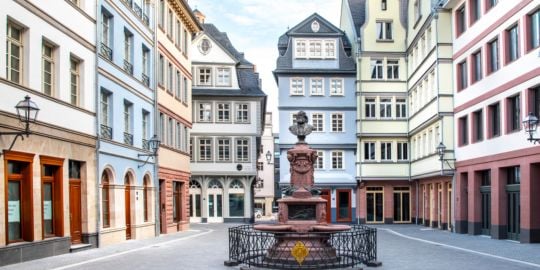Hi all,
I'm sorry if this question has been asked a gazillion times but I'm struggling to find information about this topic.
I read on the guide that after getting the proof of residence (Anmeldeformular), one can apply for the residency certificate (Meldebescheinigung), but this has to be done within 8 days after arrival and not after obtaining a contract for a house.
So I thought: what can one do if he/she can't find a place to stay within 8 days? What happens if one applies for the Meldebescheinigung after the 8-day period has expired? For instance, my plan is to spend about ten days in a hostel or somewhere through AirBnb to look for houses, but I was told that 10 days could not be enough to find a house in a city like Munich. Of course I'll try to get in touch with landlords before I leave, but I'd rather see a house before signing a contract.
Besides, is there any proof that a European citizen entered Germany in a precise day?
Would it be feasible, upon expiration of the 8-day limit, to go out of Germany and then back in to "reset the count" when a house is found?
Thanks to anyone who can help to clarify this!
Getting the Meldebescheinigung with your Anmeldeformular
Just in case someone else is wondering, on the website of the Bundesamt für Migration und Flüchtlinge they say (about EU citizens):
Just like German nationals, you have to register your residence at the residents' registration office in the town in which you live within three months of entering the country.
Unless I'm missing something or I'm talking about a different thing, I think the guide should specify this where it says:
To start with, it is important to legalize your status in Germany by applying for a residency certificate ("Meldebescheinigung") within eight days after arrival
I am wondering the same since I'm planning to move back to Germany and want to stay in the beginning in a temporary apartment / hotel. There also seem to be different rules for different cities: Berlin gives you 14 days to register, Hamburg only 8.
I will call the Bürgeramt in Berlin next week for clarification and post the outcome if no one else has come up with an answer until then.
Thanks, that would be really useful.
I realized I pasted the wrong link in my last post. Here's the one I took the quote from:
bamf.de/EN/Migration/Arbeiten/EUBuerger/eu-buerger-node.html
This is actually the only official source I found until now.
So, I found something that may be of interest and that makes more sense to me. I matched the information I found on the website of the German Embassy in London and on another expat forum and it seems that a EU citizen needs to obtain
* Residence registration (Anmeldung), within 8 to 15 days (depending on the city) after signing a contract for a house/rent (and not after arrival!)
* Request for a certificate of the right of residence, within 3 months after entering Germany
About the second one, I'm a bit doubtful: I didn't find it on a guide by the Italian Embassy in Germany and it seems the Bundesamt für Migration und Flüchtlinge doesn't specify this either (but it might be written somewhere else). On the website of the German Embassy in London it says:
This certificate is solely declaratory and not constitutive. [...] you are obliged to apply for this certificate within the first three months
Now, if someone could explain to me the declaratory/constitutive part, I would be so glad!  My guess is that it's something you officially declare, but that doesn't have further practical implications.
My guess is that it's something you officially declare, but that doesn't have further practical implications. 
It seems however that this second certificate (which should be the Meldebescheinigung) requires some additional documentation, like an employment contract, the acceptance letter from an University, proof of financial stability (if job seeker), ...
You are confusing two separate issues here:
1. You (and everybody else who lives in Germany, foreigner or not) have to register within 8 days after taking up any residence. Residence can be a temporary place (hostel, etc.) where you sty for more than 8 days. You will be issued a "Meldebescheinigung". If you move, you need to register again and get a new "Meldebescheinigung".
2. Non-EU foreigners need to apply for a residence permit within three months after arrival. This permit is issued for a certain period (often 1 year) and is independent of your place of residence.
Hi Beppi,
thanks for the explanation, especially about the Meldebescheinigung.
I still have a doubt, though: on the link I posted, it says "Registration of your residence - For this registration please contact the local Einwohnermeldeamt (Residence Registration Office) within a week of finding permanent accommodation, i.e. not a hotel". So is a temporary place valid to get the residence or not or I'm confusing something else? If it is, would it be possible to ask someone at the hostel/hotel to sign the form to get the residence?
Thanks
I registered t a hotel before, so it is definitely possible. It just depends on what they consider permanent (I stayed at that hotel for a month and needed a Meldebescheinigung). You can ask at the Amt.
The landlord (or hotel or whoever) also does not need to sign anything, only you yourself.
Coming from an EU member country you don't have to get so worried. I am not an expert but understand it that they want you to register where you are staying pretty quickly whether it is a permanent place or not. Then you should inform them again quickly once you do find a permanent place so they have the new address. It is very unlikely, and no one can expect one, to find a permanent place to live within 8 days! As Italian you can stay beyond the normal 3 months a non-EU person would get with a tourist visa if you are studying, working or actively looking for a job. The subject of contention recently has been if EU member foreigners can get benefits if they have no other ties to the host country and are not actively looking for work which they can realistically get - and the courts decided - NO. Here is some additional information i found:
Can EU migrants easily claim benefits when they arrive in another EU country?
No - there are conditions, depending on an individual's circumstances.
They can stay for three months, but to stay longer after that they have to be: in work; or actively seeking work with a genuine chance of being hired; or be able to show they have enough money not to be a burden on public services. Apart from that, evidence of benefit abuse or fraud is grounds to exclude or expel a person.
If an EU migrant has permission to stay, can he or she then claim benefits?
Not automatically - a migrant still has to pass a "habitual residence test" under EU law.
The test covers factors such as the duration of the migrant's stay; their activity, including their source of income if they are students; their family status; and their housing situation. The migrant has to demonstrate a sufficient degree of attachment to the host country. The amount of time already spent in the country is not sufficient qualification in itself.
Are EU migrants entitled to the same benefits as citizens of the host country?
Yes, if they are workers or self-employed - and their family members are entitled too. However, access to certain benefits can depend on the amount of time a worker has been paying contributions. So a native of the host country may have more entitlements.
Jobless migrants are not entitled to the same range of benefits - mainly those which are funded from salary contributions. Workers pay social security contributions, to cover sickness, unemployment, maternity or paternity, invalidity or occupational injuries.
Thank you guys for all the information!
how did you register with a hotel? did you have to show them a "contract" or a "letter"? If so, do you know if there are templates available? I'm renting a place in Airbnb for a month and I need to register, however, the guy who is renting me his apartment doesn't know what kind of contract he has to give me in order for me to register. Although he is willing to sign a subcontract. It is just the case that we don't have a template I guess.
Rental contracts can be verbal or in any other form. You don't need a template (although it could be better for legal security) and you can register your residence without one - just explain the situation to the officer.
Thank you









